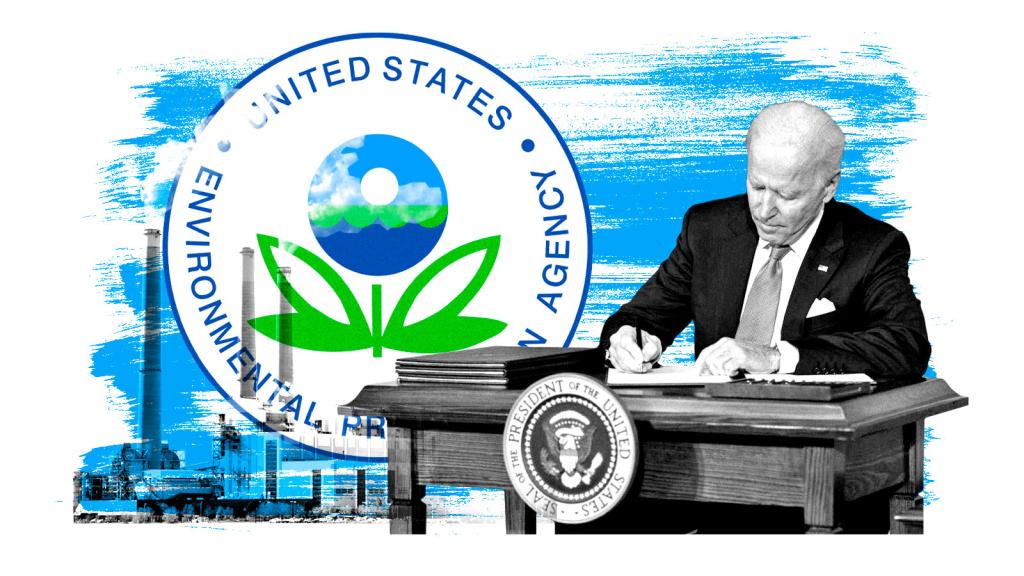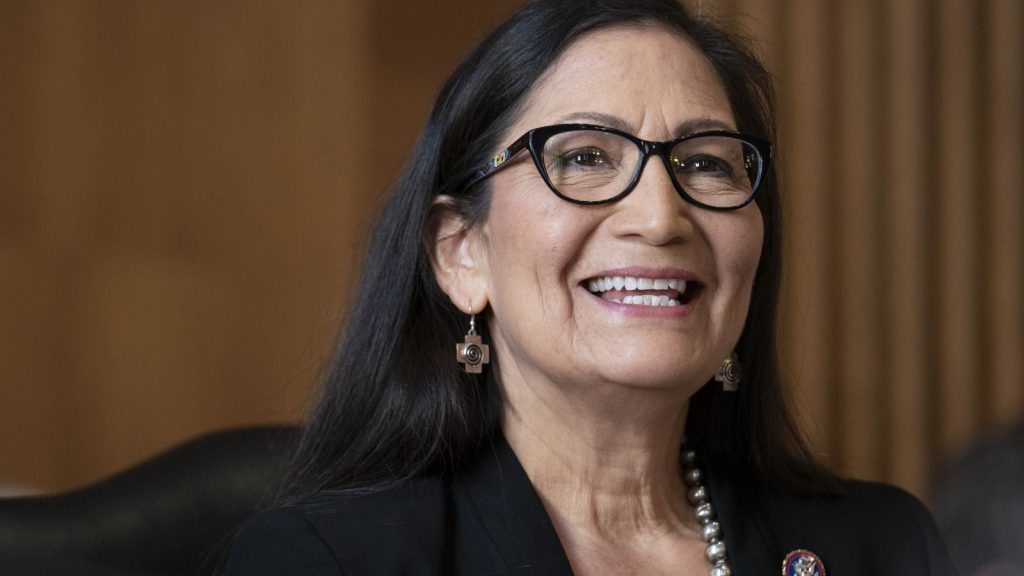In a historic vote on Monday, Debra Haaland was confirmed as President Biden’s Interior secretary. As a member of the Laguna Pueblo tribe, she will be the first Native American cabinet secretary in U.S. history.
Haaland, a former representative from New Mexico, was confirmed with a 51 to 40 split in the Senate, the narrowest margin of any of Biden’s cabinet picks so far. At the helm of the Department of the Interior, which houses the Department of Indian Affairs, she will oversee 500 million acres of public land, including the national parks system and oil and gas drilling on federal land. The Interior has an important part to play in tackling climate change, as one-quarter of all U.S. emissions can be attributed to fossil fuels extracted on these lands.
The agency also stewards the government’s relationship with 574 tribal nations. It played a role in genocide and displacement perpetrated against Indigenous Americans, and is also responsible for present-day oppression. In 2017, for example, the Interior reduced the size of Bears Ears National Monument — a sacred place for numerous tribes including the Hopi and Diné — by 85 percent.
Haaland noted the historical significance of her nomination in her December acceptance speech. “This moment is profound when we consider the fact that a former Secretary of the Interior once proclaimed it his goal to, quote, ‘civilize or exterminate’ us,” she said. “I’m a living testament to the failure of that horrific ideology.”
Haaland has a 98 percent lifetime score from the League of Conservation Voters, an organization that tracks politicians’ environmental voting records, and has supported the Green New Deal. She has also been a vocal opponent of fracking — her nomination was called a “proxy fight” over the future of fossil fuels. As a representative, Haaland introduced a resolution to conserve 30 percent of U.S. lands and waters by 2030 and cosponsored a bill directing the Department of the Interior to attain net-zero emissions from public lands.
The Senate vote this week succeeded despite attempts to thwart Haaland’s confirmation. Republican Senators Steve Daines of Montana and Cynthia Lummis of Wyoming placed informal holds on her nomination, painting her as a “far-left ideologue” and a “radical.” Other Republican senators echoed those attacks during her confirmation hearing.
Indigenous environmental advocates have said that the opposition to her nomination was rooted in racism. “She is a Brown, traditional Indigenous woman who cares about the land and future generations,” Ashley McCray, a member of the Absentee Shawnee and Oglala Lakota nations and an organizer for the Indigenous Environmental Network, told Grist last month. “At the foundation of that, she is unsettling settler colonialism, which is really what the United States government is.”
Mark and Tom Udall, former senators from Colorado and New Mexico, also noted the double standard in her confirmation hearing in an op-ed. “Were either of us the nominee to lead the Interior Department, we doubt that anyone would be threatening to hold up the nomination or wage a scorched earth campaign warning about ‘radical’ ideas,” they wrote in USA Today.
Haaland has her work cut out for her undoing Trump’s cuts and rollbacks. She says she’s up to the task. “I’ll be fierce for all of us,” she promised in her nomination acceptance speech, “for our planet, and all of our protected land.”




